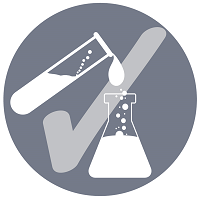Formulation and Delivery
Spray Drying to Overcome Cold Storage of RNA-Loaded Lipid Nanoparticles
Monday, October 21, 2024
3:15 PM - 3:30 PM MT
Location: 155 B
.jpg)
Tanner J. Corrado, PhD
Senior Scientist
Serán Bioscience
Bend, Oregon
Rapid Fire Speaker(s)
Lipid nanoparticles (LNPs) serve as a delivery platform for encapsulating nucleic acids that are otherwise too unstable in physiological conditions to be efficacious. Even when encapsulated, chemical instability of RNA and constituent lipids necessitates cold storage, increasing cost and logistical challenges. In this talk, solid matrix compositions (combinations of buffers and thermal stabilizing excipients) and spray drying process parameters (outlet temperatures ranging from 5–60 °C via novel vacuum spray dryer design) are identified that enable RNA-loaded LNPs to be spray dried and reconstituted with minimal-to-no change in their particle size distribution and RNA encapsulation efficiency. Optimized solid-state LNP formulations are presented that maintain performance when reconstituted after long-term storage at ambient conditions. The results show that careful formulation of solid-state LNPs manufactured via spray drying can provide a scalable path to more widely available LNP-based nucleic acid therapies with improved shelf stability as dry powders.
Learning Objectives:
- Upon completion the participant will be able to describe the formulation and process design space that achieves stable, solid-state LNP-based RNA therapeutics.
- Upon completion the participant will understand how formulation excipients impact product CQAs during manufacture and storage of spray-dried LNP-based RNA therapeutics.
- Upon completion the participant will be able to list the CQAs for LNP-based RNA therapeutics that define product stability.


